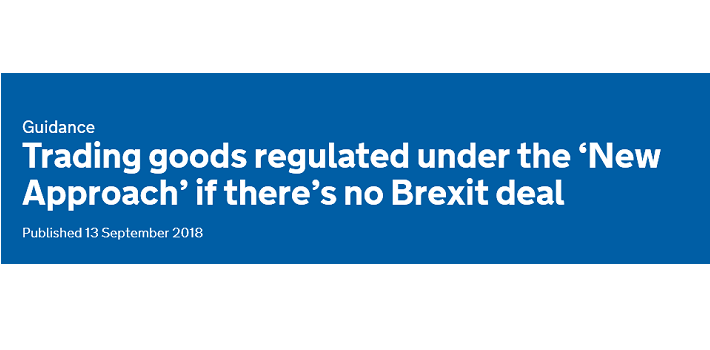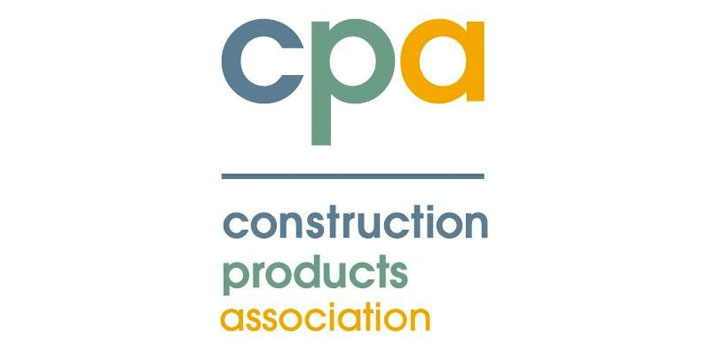
by Clair Mooney | Dec 20, 2018 | Main News Feed
On 19 December 2018 the Government published the Immigration White Paper. This sets out the Government’s proposals for the design of a new immigration system. Key elements are:
- A skilled workers route open to all nationalities.
- Lowering of the skills threshold on the skilled workers route to include medium-skilled workers (to RQF 3-5, equivalent to A-Levels), with a retention of the £30K salary threshold, but businesses will be consulted on this – this is in parallel to the ongoing review of the Shortage Occupations List being conducted by the Migration Advisory Committee.
- No cap on numbers on the skilled workers route, meaning that business will be able to hire any suitable qualified migrant.
- The abolition of the resident labour market test.
- A new ‘transitional’ time limited route for temporary short-term workers of all skill levels, including seasonal low-skilled workers, which will allow workers to come to the UK for a maximum of 12 months, with a subsequent 12 month ‘cooling off’ period (again, these will be subject to consultation). However, this route will only be open to workers from a limited number of ‘low risk’ countries. This is set out on p16-17 of the White Paper; and
- An extension to the post-study period for all international students.
Iain McIlwee, FIS chief executive said ‘This new white paper on immigration, if adopted, will create real challenge for construction businesses. It just makes no sense to have arbitrary caps, we need to look at where the need is and salary/employment is only part of the workforce. The brief nod to construction in this document just shows how little our Government understand an industry that embraces around one in ten of the workforce in the UK. We are working through Build UK and the Construction Products Association and with a group of other construction bodies to respond to this document, we will be taking the fight to Westminster in the New Year’.
A link to the full document is available here.
Last chance to fill in the Construction Industry Immigration Survey. Closing date is Friday 21 December. Please spend 5 mins completing, we need this data to underpin concerns we are raising with Government around future immigration policy.

by Clair Mooney | Dec 20, 2018 | Main News Feed
On 18 December 2018, legislation was laid before parliament necessary to ensure that the CPR regime continues to function effectively in the UK if we leave the EU with ‘no deal’. The Statutory Instrument delivers the policy approach set out in the Technical Notices published on 13 September 2018 – click here to see. Please note that this remains draft legislation until such time as it has passed al parliamentary procedures.
The UK approach is to maintain the requirements on manufacturers to declare the performance of their construction products in accordance with the existing harmonised European standards applicable on the day we exit the EU (29 March 2019). The key elements of the legislation are outlined below:
- Construction products already placed on the market can continue to circulate in the UK
- Existing European harmonised standards will become ‘UK designated standards’. Immediately we leave the EU both the EU hEN and the UK Designated standard (UKDS) will have the same text
- New UK standards will be designated by the Secretary of State
- Where a UK organisation has undertaken the third party conformity assessment process required under the UKDS, the manufacturer must affix the new UK conformity mark – this has still to be released
- Construction products that meet the hEN and have the CE mark affixed can continue to be placed on the UK market without the need for re-testing or additional marking. This arrangement will be for a time-limited period only and businesses will be given sufficient notice in advance of this period coming to an end. The end date for this period has not yet been fixed
- Where a manufacturer uses the self-declaration approach during the time-limited period they will have the choice to use either the UK or the CE mark
- For products that are not fully covered by a UK designated standard an optional UK Assessment Document (UKAD) and the issuing of a Technical Assessment will be undertaken by Technical Assessment Bodies established in the UK
- UK Notified Bodies will become UK Approved Bodies and be listed on a new UK database.
For more information please read the Explanatory Memorandum accessed here.
A copy of the draft Statutory Instrument Exiting the European Union, Building and Buildings Construction Market Standards can be viewed here.
In addition to the above, it is important that members also take on board the following issues if we leave the EU with ‘no deal’:
- Conformity assessment carried out by a UK Notified Body will no longer be recognised by the EU. They will have to be retested and re-marked by an EU recognised conformity assessment body. Alternatively, manufacturers can arrange for their files to be transferred to a EU recognised Notified Body thus enabling their certificates of conformity issued in the UK to continue to be valid
- The role of the UK Accreditation Service will not change

by Clair Mooney | Dec 13, 2018 | Main News Feed
On the day of the announcement that the vote of no confidence in the Prime Minister has cast further uncertainty on Brexit, FIS has produced for its members a Preparing for Brexit Checklist. The checklist focusses on the questions that members need to start asking across the Product, Process and People elements of their business (the three pillars of the FIS Quality in Construction Strategy). Whilst not exhaustive it aims to help members understand the impact of Brexit and look at potential risk, challenges and opportunities.
Iain McIlwee, FIS CEO says “We are constantly hearing businesses need to start preparing for Brexit. In fairness Government has started to draw information together but the complexity and volume of information is overwhelming to most small and medium sized businesses.
The simple fact is preparing for Brexit is extremely difficult whilst Brexit is being kicked around like a political football in Westminster and regardless of the outcome or our own views, there remains so much uncertainty and cause for concern out here in the real world.
Instead of trying to predict outcomes, FIS have developed the “Preparing for Brexit Checklist” to help focus on the elements that will most likely impact on our members and help them to adopt a more risk-management based process. It is all about starting to have the right conversations with staff, sub-contractors, suppliers and customers and identifying where the impact may be. It is very much a live document and I’m sure our members will help us to shape it further with their questions, comments and views – at the end of the day we are a community and at times like these we need to draw together.”
For more information on the Preparing for Brexit Checklist visit our website at:
www.thefis.org/knowledge-hub/brexit-checklist/

by Clair Mooney | Dec 10, 2018 | Main News Feed
New Government plans to crack down on late payments could see public sector outsourcers who take months to pay their own suppliers, being blocked from bidding for new contracts.
From next autumn procurement bosses will be expected to assess whether or not suppliers on contracts worth more than £5m per year have “robust measures” to ensure subcontractors are paid on time and are settling 95% of their invoices within 60 days of receipt.
Cabinet Office minister Oliver Dowden, said those who are found to be paying their suppliers later “could stop winning public contracts altogether – until they clean up their act”.
The move follows the collapse of Carillion, a major Government contractor that maintained schools, prisons and hospitals, in January, which has since been accused of hiding the true scale of its debts by using supply chain finance, as suppliers were forced to either use the scheme or wait 120 days to be paid.
FIS chief executive said “At the end of the day any focus on poor payment is welcome, but again whilst we support the approach the language is still a bit woolly, I’d be happier to see the word ‘could’ replaced with ‘will’. Payment remains a real cancer at the core of construction that undermines a healthy culture’.
Martin McTague of the Federation of Small Businesses said the new rules would “send a clear message that paying late is not okay.”
He added: “Measures to open up public procurement give tax payers and our public services access to the innovation and value small firms bring, as well as helping our economy.”
The new rule is the latest in a series of efforts by the Government to crack down on late payments, which are estimated by the FSB to have caused cash flow problems for more than one third of small firms.
Paul Uppal, a former Tory MP and small business owner, was appointed the first Small Business Commissioner last year with a specific remit to tackle the problem. In October ministers vowed to pay 90% of small central government suppliers within five days.
Mr Dowden said: “Companies providing crucial services to the public sector, like supporting prisons and delivering road infrastructure projects, must be paid on time.
“Paying invoices promptly is vital in providing healthy cash flow, particularly for smaller businesses who are the backbone of the UK economy, to help them survive and thrive.

by Clair Mooney | Nov 30, 2018 | Main News Feed
FIS and nine other leading trade and professional bodies have come together to understand what skills are in greatest demand as the UK prepares its exit from the EU.
The survey, which will go out to more than 20,000 companies across the UK construction sector, will ask respondents to indicate which roles they are finding it difficult to recruit now and which they expect to be challenging post-Brexit.
The survey is supported by the following industry groups.
- Association for Consultancy & Engineering
- Build UK and member trade bodies
- Chartered Institute of Building
- Civil Engineering Contractors Association
- Construction Plant-hire Association
- Construction Products Association and member trade bodies
- Finishes and Interiors Sector (FIS)
- Federation of Master Builders
- Highways Term Maintenance Association
- National Federation of Builders
Companies that are not part of the above organisations are also invited to contribute to the research to ensure that the survey has as wide reach as possible. Evidence uncovered from the survey will be used to identify where the industry should be focussing its efforts to recruit new workers.
It will also be used to engage with the government and Migration Advisory Committee to support decision-making on appropriate migration for workers from the EU and rest of the world.
Mark Reynolds, Mace chief executive and skills lead for the Construction Leadership Council, said: “We know that our sector will need to recruit hundreds of thousands of new workers over the coming years. We want to ensure that this recruitment is supported with targeted actions by industry and government. The first step in achieving this is the development of a detailed picture of those occupations where we face the biggest challenge. I welcome the fact that the industry is unifying to develop this research and encourage all companies from across the industry to take part in the survey.”
Hannah Vickers, chief executive of the Association for Consultancy and Engineering, said: “With all the uncertainty around Brexit and its impact on skills, we need to make sure that our industry has a sound evidence base from which to argue, which is why I will be asking all our members to participate in the survey. We will need to come together in one voice and collectively make the case for construction to government, ensuring that any post-Brexit agreement secures the skills our sector needs now and into the future.”
Iain McIlwee, FIS chief executive said: “FIS is running one of the most ambitious skills programmes in construction, but we can’t do it alone, it is vital that the industry as a whole unites to focus on the skills we need now and for the future of the construction sector”.
Click here to take part in the industry skills shortages survey.

by Clair Mooney | Nov 27, 2018 | Main News Feed
An outline of the Political Declaration setting out the draft framework for the future UK/EU relationship has been summarised covering those aspects which of specific interest to members of the Construction Products Association. Being a Political Declaration this carries no legal certainty. View the full document here, under the ‘Construction Products Association’ tab.






